For businesses of all sizes, customer service can often mean the difference between a satisfied client base and a lost client. It’s an essential skill and knowledge for every employee, but you might be surprised at how many people fail to hone their skills.
If your business relies on customer service, you need to make sure your staff is trained and ready to handle their problems – and that means hiring the right people. The customer service department is responsible for helping your company interact with its clients daily, solving their problems daily. It is essential to know what these skills are and how to employ them when interacting with your clients.
If you want to compete in today’s global economy, having a good product will not be enough. You need excellent customer service if you want your clients to come back to your company. So, your employees will need to have excellent skills for this job.
Buyers have an unprecedented level of choice. To make your product or service stand out, you will need to offer the best balance of price, quality, and service.
When most people think of customer service, they think of teams of people answering phones in a contact center. Also, they assume the job itself is relatively menial and unskilled. This could not be further from the truth. The customer service staff are the voice of your company. How they treat clients has a significant impact on your organization’s reputation. What sort of customer service knowledge and skills do your employees need?
Many people think customer service is only about being nice to clients, but it goes much deeper than that. Every employee needs to know eight types of customer service skills to deliver world-class service every day.
What is Customer Service?
“Customer service” is a term often used to describe the services that a business provides its clients. The term encompasses a wide range of activities, from helping a client and placing an order to helping them solve a problem after the sale is completed.
Some people have problems defining customer service because it’s hard to tell what it is. However, there are a few key elements that define it.
Customer service is the act of taking responsibility for providing consistent customer satisfaction, product quality, reliability, and fair interactions with your customers. It is more than just making a customer happy; it’s providing them with value, satisfaction, and convenience.
It’s about being there whenever they need you. Being responsive is a sign of being committed to customers and is a great way to demonstrate that you care.
Related: 10 Smart Skills You Will Need Now as an Entrepreneur
Why do You Need to Care About Your Customer Service Important?
Customer service is essential to any business because it fosters relationships with customers, which helps create more sales.
In fact, according to the American Customer Satisfaction Index (ACSI), businesses with the best customer service scores make more per person annually than their competitors.
According to ACSI, there is a strong correlation between the national customer satisfaction index and corporate profit over time.
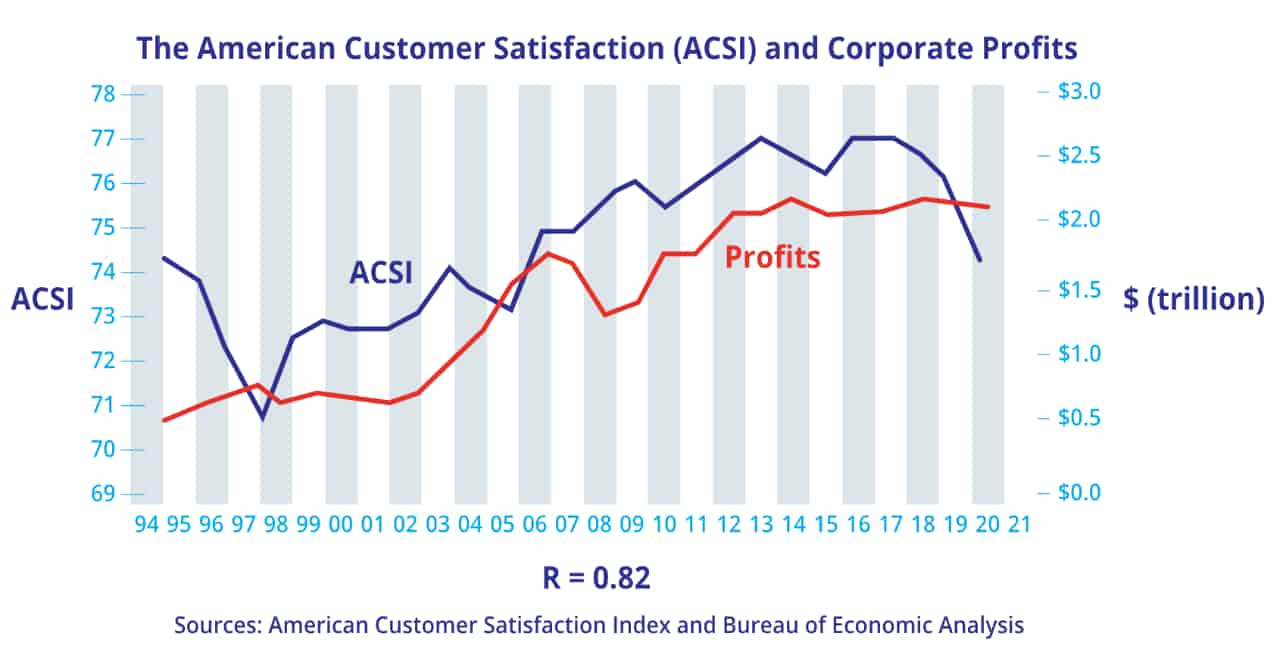
According to Statista, during 2020, 40% of customers have stopped doing business with a company due to poor customer service.

As you can see, these skills are vital in the modern workplace because they allow you to serve others effectively, improve customer satisfaction, and develop a positive reputation within your organization. This will bring a higher level of your company’s profitability.
The proper knowledge and skills can differentiate between a job well done and a poorly handled job. As the world gets more connected, it’s also getting more complex and complicated, and customers are getting more demanding than ever.
Related: 9 Self-Management Skills and How to Improve Them
Customer Service Skills Your Team Members Will Need to Master
1. Listening
The single most essential skill for customer service workers is the ability to listen. By listening to your customers, you can determine what product they want and what you can do to help them. In many cases, when a customer calls to complain, it can be difficult to figure out what the customer means by what they are saying. It takes a lot of experience to learn how to deal with angry and sometimes incoherent customers.
Gaining that skill starts with increasing knowledge about how to listen. Once you’ve learned how to listen, you’ll be able to make better decisions and respond to customers more effectively.
These skills can help you gain the trust of your customers. Once you establish trust with your customers, you can build rapport with them.
Rapport is an established business relationship between two people where trust has been created. It’s based on understanding what the other person is saying and thinking. Hearing what customers say helps you gain that trust.
Salespeople who listen have a higher chance of selling to a customer and winning a deal than salespeople who don’t listen.
There are many different ways to listen. We’ll discuss two of the more common ones.
✋ Warning
Active Listening
Active listening means paying attention to what your customers are saying and responding appropriately. It requires you to hear what your customers are saying, and you do that by making sure you are physically close enough to your customers. This also requires turning off your internal dialogue and focusing solely on your customer.
It can be difficult to practice because you can easily let your own thoughts get in the way. If you feel like you can’t actively listen because you are thinking about what you want to say in response to the customer, take a few deep breaths. Once you calm yourself down, it’s easier to listen.
Passive Listening
I am not recommending this type when it comes to your customers.
It is a method of hearing what the customer is saying. You do this without focusing too much on the customer’s words. Instead, you focus on the feeling behind what the customer is saying.
Related: 10 Reasons Being An Entrepreneur Is Better Than Employment
2. Clear and Concise Communication
It’s essential to get straight to the point if you want to communicate well with your customers. Let your audience know what you want, what products you’re offering, and why they should care. The more you can do this upfront, the better. Also, be concise.
Most people are bad at communicating with others in a clear and concise manner. In this case, clarity isn’t just about speaking to others clearly. It also means you have to be clear and concise in your messages and communications. If you’re sending emails to multiple parties, make sure that each message is clear and concise.
Whether it’s in a conversation, an email, a text message, or a social media post, clarity and conciseness are important in any message.
One tip to keep in mind is that too much detail doesn’t necessarily help people understand what you’re saying. It’s best to be concise with details rather than writing long-winded messages that don’t help readers understand what you’re trying to say.
Clear and concise communication is an art, not a science. It’s about effectively using language to persuade and move your audience to action.
This is a skill that should be practiced and improved upon regularly.
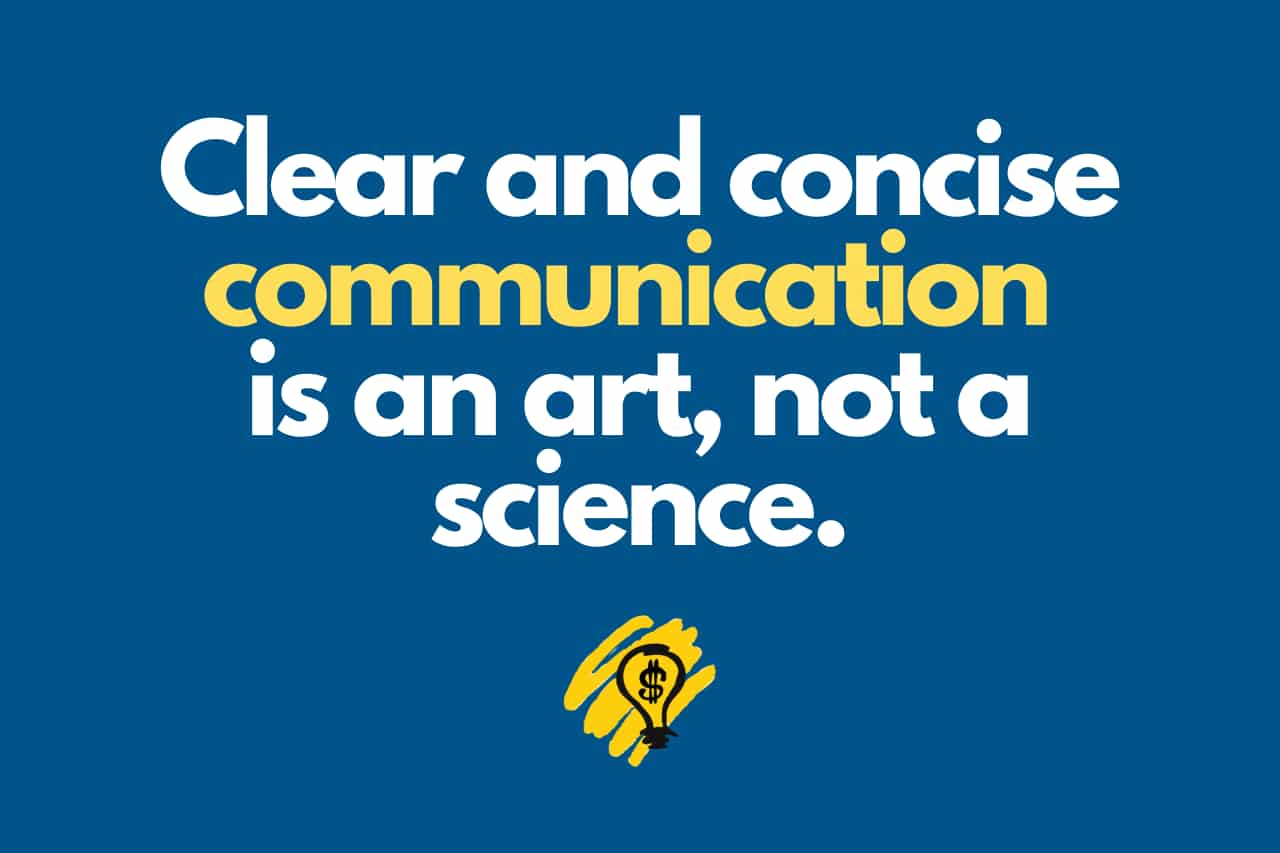
The contact center floor is not the place for slang, colloquialisms, or lazy communication. When you send out written communications to your customers, you most likely have them proofread by several people to ensure that everything is clear, concise, and accurate. Your employees should communicate similarly.
Spoken communication is fast and fluid. There are a lot of things that can go wrong. However, you should expect your employees to be able to speak slowly and clearly. Also, they will need to use a tone of voice appropriate for the situation. They need to avoid making promises that the company may not be able to honor.
Improve these skills for your employees, and you will improve the overall customer service process inside your company.
3. Empathy
Understanding and empathizing with a customer is one of the most critical customer service skills a brand can possess.
When you take on a role that requires you to listen and respond to someone else, you need to understand the feelings and emotions of those around you.
Empathy is the ability to listen to what customers are saying and understand their situation and respond to it in an appropriate manner. It is the ability to put yourself in someone else’s shoes and understand their emotions and experiences.
Someone good at displaying empathy can use their discretion to provide the best possible service to the people they are speaking to. So, they are winning the trust of those customers and possibly appeasing dissatisfied customers. These customers may otherwise choose to take their business elsewhere.
While some might argue that you can’t learn empathy, it can certainly be learned and can be learned quickly. One way to do so is to pay close attention to customers’ emotions and experiences.
To make sure you can connect with your customers, ask yourself: Who am I speaking with? What is my relationship with this person? Do I have a personal connection to what they are saying? Are they speaking for themselves, or is it about me?
According to research, people are more likely to be persuaded by arguments that resonate with their values. So if you want to convince someone to take action, you might begin by thinking about the things that matter most to them. Then, use your understanding of those values to craft an argument that speaks to them.
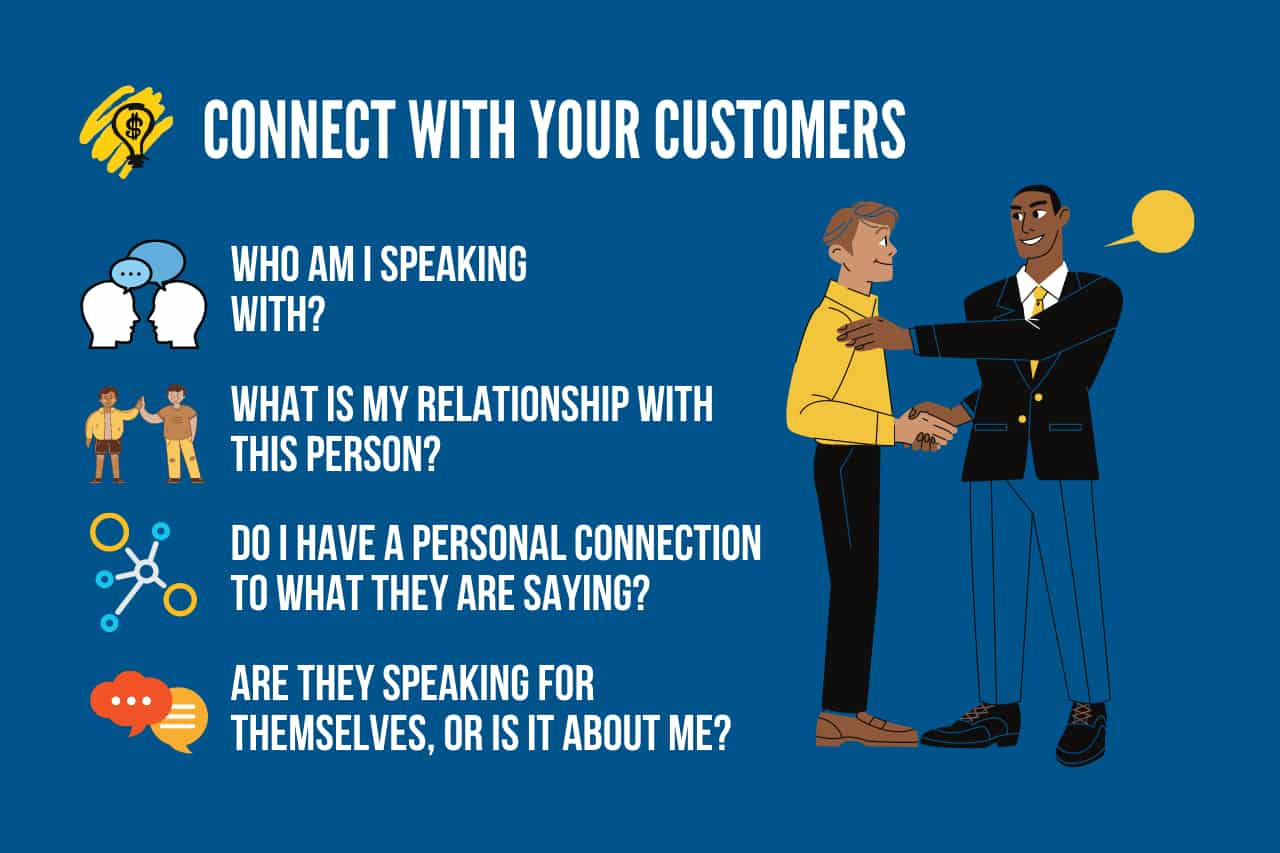
This requires your employees to use their intuition and empathy and think about what the customer would want, rather than just respond to the questions and problems that the customer has.
As an entrepreneur, you can start by practicing empathy as a personal skill. Practice being empathetic towards yourself and others, even if it’s only for a few minutes a day. Then practice applying this empathy to situations in which you work.
4. Acting
As I said earlier, friendly and approachable people are usually more successful than those who are standoffish. Having the ability to act with people is very important. Good actors can be very helpful when you’re dealing with customers. They can also make your customers feel more at ease. They are good at putting on a happy face, which helps calm people down.
This may seem cynical, but the ability to act is an essential part of customer service. Even the most upbeat, patient, and friendly person will have off-days. So, having the ability to act on such days with them will come in handy.
A good actor can put forward a convincing impression of friendliness, concern, and politeness.
A bad actor trying to do the same may be well-intentioned but will be sarcastic and patronizing. That will not make a good impression on your customers.
Acting can be fun and entertaining. So, learn how to act, and your customers will be impressed by your positive attitude. The best way to learn acting is to practice. Actors can improve their skills by performing. Performances are the best way to learn acting. They also make the actor better at the art of acting. An actor should perform even when he is not acting so that he can become a better performer.
This is why you should practice acting. Acting doesn’t require any special skills. It’s just about being yourself. It’s a good idea to practice talking with people you don’t know. When you learn to act naturally, your customers will think you are just yourself. You might want to use the method of role-playing where you play different characters to practice.
5. Discretion and Analytical Skills
A vital element of any great business is its ability to anticipate and respond to changing circumstances. But what happens when the customer is more of a wildcard than a predictable actor? This is where “discretion” and “analytical skills” come into play.
People who excel at these skills are generally very good at choosing between options and making intelligent decisions. However, it can also come through experience, as people who tend to make good choices develop a skill set of self-awareness that allows them to pick between options.
When they call customer service, most people believe that they are a special case – otherwise, they wouldn’t be calling. This means that your customer service employees will be dealing with many requests for more time to pay, product quality issues, faster delivery, upgrades, refunds, and other concessions. While some of those requests may need to be escalated to a manager, passing on every call should not be necessary.
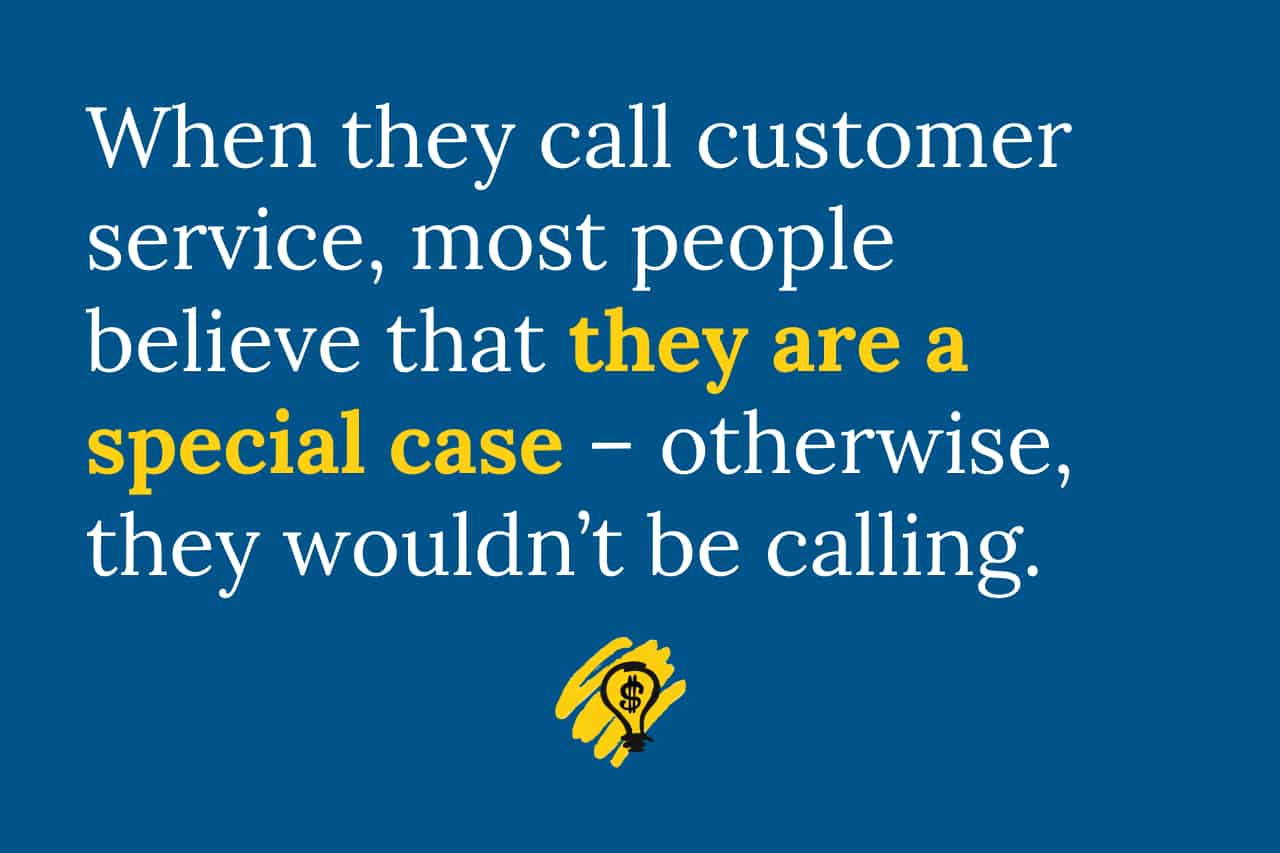
A good customer service worker can use their discretion and analytical skills to deal with as many calls as possible in a timely manner.
Discretion is actually an essential customer service skill for any business that wants to build long-term customer relationships. And for those who operate a business that relies on repeat customers, discretion can be an especially valuable skill.
The ability to listen and analyze data is a vital skill. Knowing what to say and when to say it can really make all the difference in any situation. Analytic skills don’t just help you see things; they give you a deeper understanding of what’s happening around you.
People who know how to evaluate a situation, how to look into it, and how to react and respond are more confident. They can handle difficult situations better, make sound decisions, and can get through difficult conversations with greater ease.
6. Patience
Another critical skill to have as a customer service representative is patience.
When speaking to a customer, patience is the most valuable and least expensive form of customer service. It requires the ability to be patient in a situation where it seems like everything is moving too fast, especially for you. It requires patience because there are times when people don’t respond immediately to your request, or worse yet when people don’t understand or follow through on what you want them to do. Patience is absolutely required in customer service.
When I say patience, I don’t just mean waiting for a customer to get off the phone or finish typing a message in an online chatbox. I mean, thinking about your customer’s needs as you’re serving them and empathizing with them and their situation. This is a skill in itself and not something that comes naturally.
Related: What is a Chatbox? Methods to Increase Conversion on the Site Using Live Chats

We tend to assume that we must do something to customers before they like us, trust us, and pay for our services and that we can only win if we offer our services first. But that’s not true.
To understand patience, we need to change our focus from winning to selling a product and recognize that we can be patient with potential customers all along the sales funnel. That means being nice to prospects who aren’t ready to buy your product, knowing that we may never win over that customer, and not being bothered if they choose to purchase elsewhere instead.
7. Adaptability
If your team members can adapt to change, your small business will be a better service provider for your customers and their problems.
If you are a service professional, adaptability is a must. But how can you become more adaptable? The best way to become more adaptable is to practice.
Try using different scripts as a guide only and improvise based on the situation. So, you can see which ones work better with your customers.
People respond differently to different situations and people. You can’t always follow scripts exactly as they’re written. For example, if you’re trying to sell a product like an insurance policy, and the customer asks, “Why do I need this?” you may need to answer, “Because it helps protect you from loss.” If you don’t have each situation covered inside the scripts, and probably you will not have, you need to be adaptive according to different situations. You can not say, “Sorry, there is no answer to such a question about this problem in my script.”
8. Persuasion
Sometimes, your customer service department will be contacted by customers not only for problems or product support but also because they need help with purchasing decisions. So, your team members will need to be prepared to respond to such contacts and be persuasive to convince them to make the right decision.
If you have a background in sales, you are comfortable working with people to get them to understand why they should choose your product. It’s not always easy convincing someone to buy what you sell, but you can make it happen if you know how to persuade.
When you’re trying to sell something, whether it’s a product or a service, the most important thing you can do is get someone’s attention. It’s all about creating a compelling message that gets people excited about what you’re offering and what problems you can solve. If you don’t get their attention, they will never be interested in buying from you.
How Can You Improve Customer Service Skills?
1. Practice
The best way to improve your customer service skills is simply to practice, practice, and practice. It’s as simple as that. You may not have the opportunity to work on your customer service skills regularly, but it’s important to remember that there is always someone else who needs your help, and you never know when you’ll get that chance.
2. Ask for feedback
One way to improve your customer service skills is to ask for feedback from customers. You can learn what they liked about your product and services and what they would change by asking them directly. If you do this correctly, you’ll be able to make changes before you lose a customer.
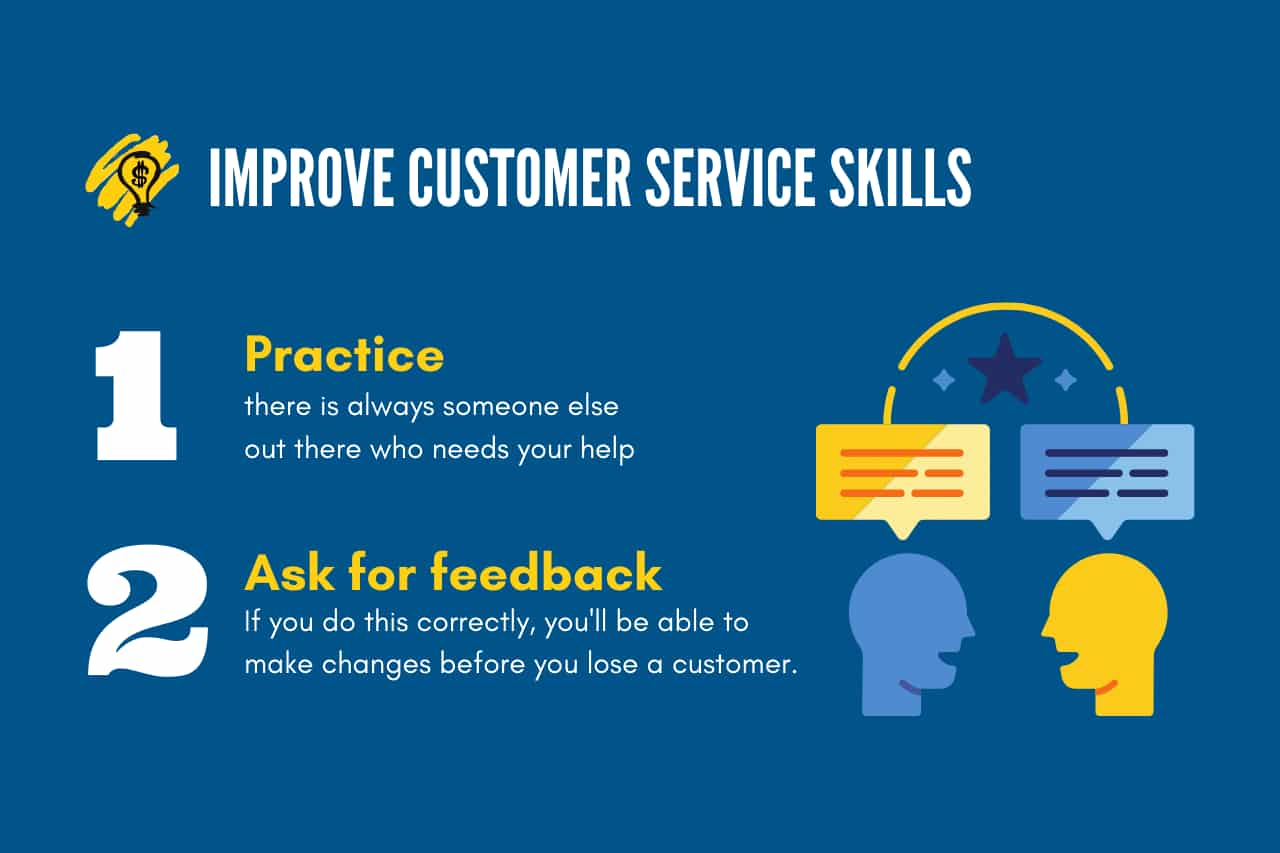
Don’t be afraid to ask for feedback! It’s a great way to understand how customers feel about your service. It is crucial to any business.
Even if the feedback isn’t positive, it’s still important to know what you need to improve or change. Asking for feedback can be done in many ways, such as posting on your social media sites, sending out surveys, or just talking to customers.
Conclusion
In today’s competitive market, customer service has never been more critical. It is all about making the customer feel that his/her needs are the priority. Customer service isn’t just about listening and responding. It’s also about creating memorable customer experiences.
You cannot run a successful business with bad customer service.
If you don’t have good customer service, you’re going to be left in the dust by your competitors. So, if you’re going to train your employees to deliver stellar customer service, it’s essential to train them correctly.
You’ll want to make sure that you’re using social media to communicate with your customers. Social media gives your customers a direct line of communication with your company, so you want to make sure that you’re responding quickly and effectively to questions, problems, and comments.
With these six customer service skills we have talked about here, your employees will need to ensure that your customers are treated with respect and that their needs are always met.



